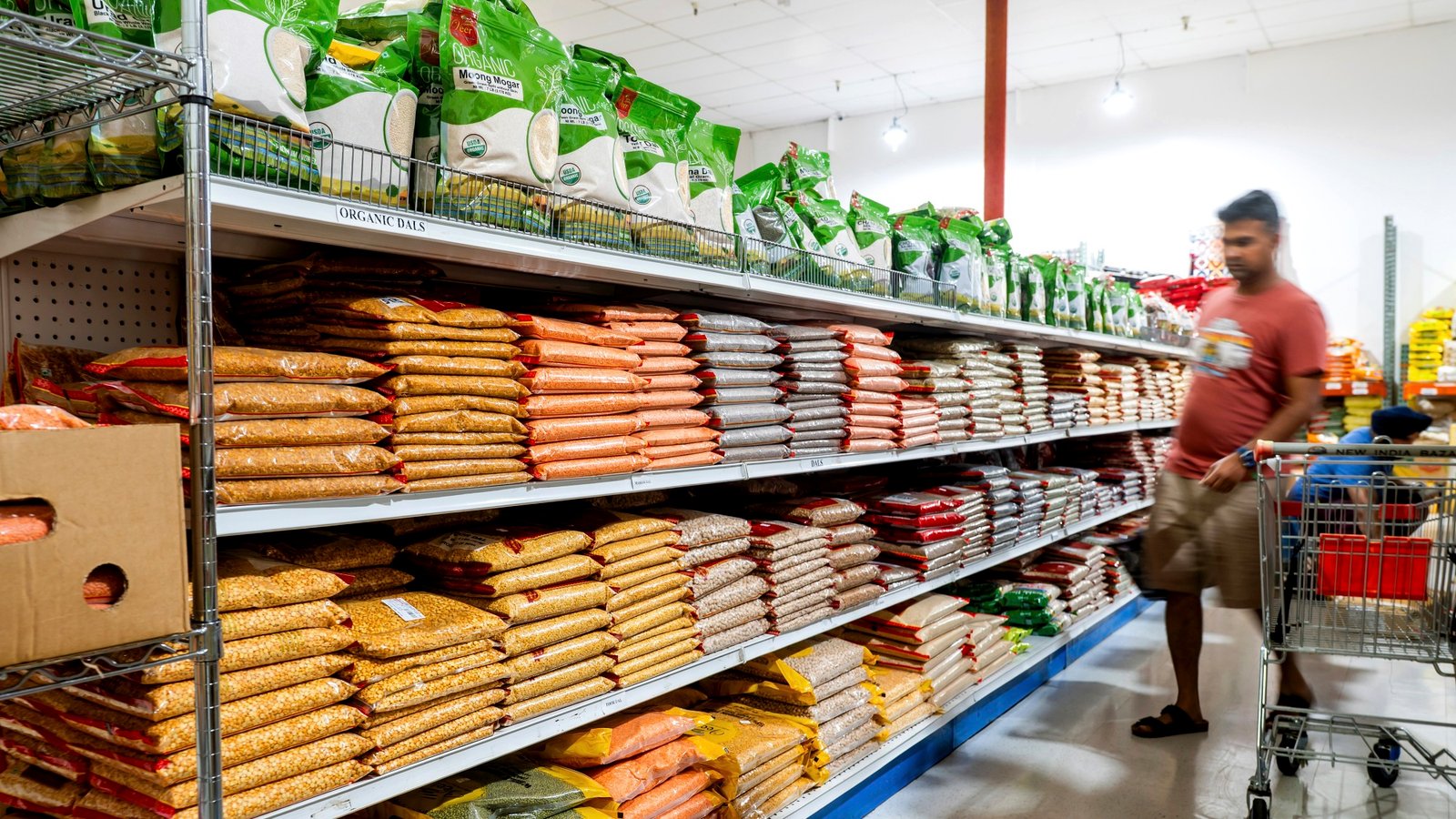
Trump’s extensive definitions enter into force, as economic pain appears

President Donald Trump was to officially start imposing higher taxes on dozens of countries on Thursday, just as the economic repercussions of the threats of tariffs that lasted for months began to cause clear damage to the American economy.
The White House said that immediately after midnight, goods from more than 60 countries and the European Union will face tariff rates of 10 percent or higher. Taxes will be imposed on products from the European Union, Japan and South Korea by 15 percent, while taxes from imports from Taiwan, Vietnam and Bangladesh will be imposed 20 percent. For places such as the European Union, Japan and South Korea, Trump also expects to invest hundreds of billions of dollars in the United States
"I think growth will be unprecedented," Trump said on Wednesday afternoon. He added that the United States was "Take hundreds of billions of dollars in definitions," But he could not provide a specific personality for revenue "We do not even know what is the final number" Regarding tariff rates.
Despite the uncertainty, the White House Trump is sure that the appearance of its wide tariff will provide clearly about the path of the largest economy in the world. Now that companies understand the trend to which the United States is heading, the administration believes it can intensify new investments and employ jump in ways that can balance the American economy as a manufacturing power.
But so far, there are signs of wounds that have caused themselves to America as both companies and consumers for the impact of new taxes. What the data showed is an American economy that changed in April with the first Trump offer for definitions, the event that led to the market drama, the Trump negotiating period and the final decision to start its global definitions on Thursday.
After April, economic reports showed that employment began to stop, get rid of inflationary pressure to the top and began home values in the main markets to decline.
"The least productive economy requires fewer workers," Silvia said in an analysis note. "But there is more than that, the high customs tariff prices fell than the real wages of workers. The economy has become less productive, and companies cannot pay the same real wages as before. Procedures have consequences."
However, the final transformations of the definitions are unknown and can play for months, if not years. Many economists say that the risks are that the American economy is steadily eroding rather than immediately collapsing.
"We all want to be made for TV where this explosion is – not like this," Brad Jensen, a professor at Georgetown University, said. "You will be great sand in gears and slowing things."
Trump promoted definitions as a way to reduce the ongoing trade deficit. But the importers sought to avoid taxes by importing more goods before taxes intervened. As a result, the trade balance of $ 582.7 billion in the first half of the year was 38 percent higher than 2024. The total construction spending decreased by 2.9 percent during the past year, and the factory functions that Trump promised so far resulted in work losses.
The period before Thursday is appropriate for the nature of the Slapdash of Trump’s definitions, which have been presented differently, rapidly, delayed, increased, imposed a speech and re -negotiated it in a feverish way.
This process has been disturbed to the extent that officials of the main trade partners were not clear at the beginning of the week whether the definitions will start Thursday or Friday. The language of July 31, to delay the beginning of the definitions from August 1, said that the higher tax rates will start in seven days.
On Wednesday morning, Kevin Haysit, director of the National Economic Council of the White House, was asked whether the new definitions began in midnight Thursday, and said that journalists should verify the US Trade Representative Office.
On Wednesday, Trump announced an additional tariff of 25 percent for imposing on India to purchase Russian oil, which amounts to total import taxes to 50 percent. He said that import taxes still come to pharmaceutical medications and announced a 100 percent tariff on computer chips, which means that the American economy can remain in a place for hanging animation because it is awaiting influence.
The president’s use of the 1977 law to declare economic emergency to impose customs tariffs is also challenging. The imminent ruling from last week’s session before the American Court of Appeal could cause Trump to find other legal justifications if the judges say it has overcome his authority.
Even the people who worked with Trump during his first term are skeptical that things will go smoothly for the economy, such as Paul Ryan, former Republican House Speaker, who has emerged as Trump’s critic.
"There is no kind of logical basis for this president who wants to raise tariffs based on his whims and opinions," Ryan told CNBC on Wednesday. "I think the volatile water in the future because I think it will face some legal challenges."
However, the stock market was strong during the recent tariff drama, as the S& P 500 index increased by more than 25 percent of its lowest level in April. The market recovery and income tax discounts in Trump’s measures and its spending in the law on July 4 gave confidence in the White House that economic growth must accelerate in the coming months.
To date, Trump still expects an economic boom while waiting for the rest of the world and American voters nervously.
"There is one person who can be more favorable about the uncertainty he creates, and this is Donald Trump," Rachel West, an older colleague at the Century Foundation, who worked in Biden White Policy on Labor Policy, said. "The rest of the Americans are already paying the price of this uncertainty."
Copyright 2025, NPR













Post Comment